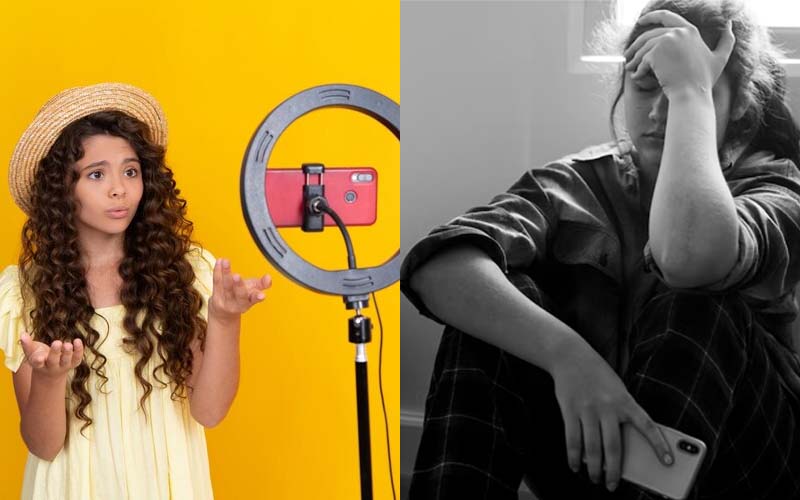Is Social Media Destroying Young Minds? You Won't Believe What They're being Exposed To
Ever wondered how most of the teenagers and the younger section of society are dealing with weak mental health? There could be a lot of reasons contributing to the high rates of depression, doubt, trust issues and insecurity among teenagers and people in their early twenties. Social media tops them all.
Having billions of active users around the world, social media creates a culture of comparison and self-doubt that can be especially damaging to young people who are still developing their sense of identity and self-worth. These young minds think everything on the internet is just fun and better.
Social media can have both positive and negative impacts on underage and young minds.Having social media omnipresent in the lives of young people today, it offers many benefits, including the ability to connect with others and share ideas,but, it can also have negative impacts on their mental health and well-being.
In this article, we will explore some of the ways social media is impacting underage and young minds.
Addiction and Sleep Deprivation
Social media leads to addiction and sleep deprivation. Young people may spend hours scrolling through their feeds, engaging in constant communication with friends, or playing online games. This can result in a lack of sleep, which can negatively impact their physical and mental health. For example, a study by the American Psychological Association found that young people who spent more time on social media had more difficulty falling asleep and staying asleep.
Exposed to Harmful and Inappropriate Content
It also exposes young people to harmful or inappropriate content, such as violence, drug use, or explicit sexual content. Young people may also be vulnerable to online predators or scams.They are using social media as their primary source of news and information, and they may be exposed to violent or graphic content, hate speech, and fake news.
Blindly Following Trends and imitating Infuencers
Social media has created a culture where popularity and social status are often measured by the number of followers, likes, and shares. Underage and teenage individuals are often known to be easily influenced by celebrities, and social media influencers. They are at a stage of life where they are still developing their own identity, and often look to those around them for guidance and inspiration.
Feeling Burnt Out and Depressed
It can lead to burnout among young people through the constant need to stay connected and engaged. Social media platforms are designed to be addictive, with features such as notifications and algorithmic feeds that are designed to keep users engaged for longer periods of time. Young people may feel pressure to constantly check their phones and social media accounts.

Insecure about Body Image and Self-Esteem
Social media has had a profound impact on the way that teenagers view themselves and their bodies. The constant exposure to images of unrealistic beauty standards, coupled with the pressure to present a perfect image online, has contributed to feelings of low self-esteem and negative body image among young people.
It is through the promotion of idealised beauty standards. Social media platforms are flooded with images of thin, conventionally attractive people, which can create a sense of pressure for young people to conform to these unrealistic ideals.
Teenage Relationships and Interpersonal Communication
Another significant impact on teenage relationships is the way it has changed the nature of communication. Social media has made it easier for young people to communicate with each other, but it has also made it more difficult for them to develop strong interpersonal communication skills. Many young people rely on social media as a primary means of communication, and as a result, they may struggle with face-to-face communication and building meaningful relationships.
It has also changed the dynamics of romantic relationships. Social media has made it easier for young people to connect with others, but it has also made it easier for them to engage in risky behaviours such as sexting or sending sexually explicit messages.
Increase in Crimes and Disrespectful Behaviour
Social media may be contributing to an increase in crimes and disrespectful behaviour among young and underage boys towards girls. The platforms are increasingly being used to spread harmful content, including explicit images and videos, and to promote negative attitudes towards women. This can have a serious impact on the attitudes and behaviour of young boys, leading them to be hurtful and disrespectful towards women and commit crimes.
Wrapping Up
Overall, social media can create a toxic environment for young people, demanding constant sharing and creating a sense of competition and pressure to always be "on." It's important for parents, educators, and society as a whole to recognize these pressures and help young people navigate social media in a healthy and positive way and put them on media detox for a while.

